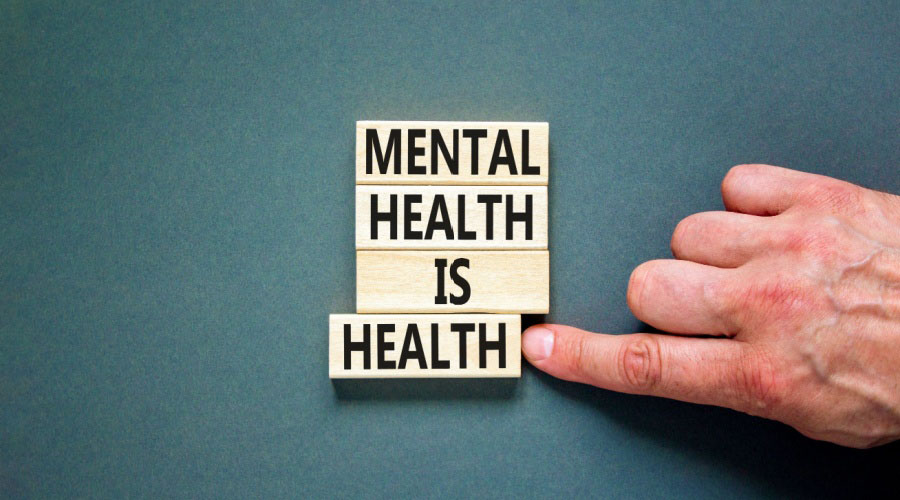May Is Mental Health Awareness Month
Mental Health Awareness Month was established in 1949 to increase awareness of the importance of mental health and wellness in Americans’ lives and to celebrate recovery from mental illness. Mental health is a key component to maintaining a healthy lifestyle. It’s easy to concentrate on our physical health and ignore mental health concerns.
What Does Mental Health Entail?
Mental health is a person’s emotional, psychological and social well-being and how it affects a person’s thoughts, feelings, behaviors and actions. It’s important at every stage of life’s journey, from childhood to old age. Mental health helps people cope with stress, relate to others, and make positive choices. Proper mental health is also necessary for effective functioning in daily activities, such as work and school and helps people adapt to changing circumstances.
Signs of Mental Health Concerns
Identifying a possible mental health concern is not always easy. For example, we all get down at times but how can you distinguish that from clinical depression? If you’re not sure if you or someone you know is living with mental health problems, here is a list of some things that may be an early warning sign of a bigger problem:
- Eating or sleeping too much or too little
- Pulling away from people and usual activities
- Having low or no energy
- Feeling numb or like nothing matters
- Having unexplained aches and pains
- Feeling helpless or hopeless
- Smoking, drinking, or using drugs more than usual
- Feeling unusually confused, forgetful, on edge, angry, upset, worried, or scared
- Yelling or fighting with family and friends
- Experiencing severe mood swings that cause problems in relationships
- Having persistent thoughts and memories you can’t get out of your head
- Hearing voices or believing things that are not true
- Thinking of harming yourself or others
- Inability to perform daily tasks like taking care of your kids or getting to work or school
Treating & Living With Mental Health Conditions
The first thing to understand is that you’re not alone. Millions of people struggle with mental health conditions. For some, they are mild and temporary while for others, they are severe and chronic. Having a mental health condition can make it difficult to work, go to school school, keep a regular schedule, maintain healthy relationships as well as perform many other basic functions of “normal” life.
Early and consistent treatment, which may include medication, therapy or both, can make it possible to manage these conditions and lead a meaningful, productive life. There are also tools, new treatments, and social support systems that help people feel better and pursue their goals. If you have a mental health condition that requires care, make sure that you follow these guidelines:
- Stick to a treatment plan. Even if you feel better, don’t stop going to therapy or taking medication without a doctor’s guidance. Work with a doctor to safely adjust doses or medication if needed to continue a treatment plan.
- Keep your primary care physician updated. Primary care physicians are an important part of long-term management, even if you also see a psychiatrist.
- Learn about the condition. Being educated can help you stick to your treatment plan. Education can also help your loved ones be more supportive and compassionate.
- Practice good self-care. Maintain your prescribed medication regimen. Control stress with proper sleep, a healthy diet and exercise.
- Reach out to family and friends. Maintaining relationships with others is important. In times of crisis or rough spells, reach out to them for support and help.
- Develop coping skills. Establishing healthy coping skills can help people deal with stress easier.
Need Help?
- If you or someone you know is struggling or in crisis, help is available. Call or text 988 or chat 988lifeline.org.
- To learn how to get support for mental health, drug, and alcohol issues, visit FindSupport.gov.
- To locate treatment facilities or providers, visit FindTreatment.gov or call SAMHSA’s National Helpline at 800-662-HELP (4357).
- .
Mental health benefits are available with many of the health plans that we offer. Would you like to learn more? Fill out the contact form or Call a Savers Health representative today





